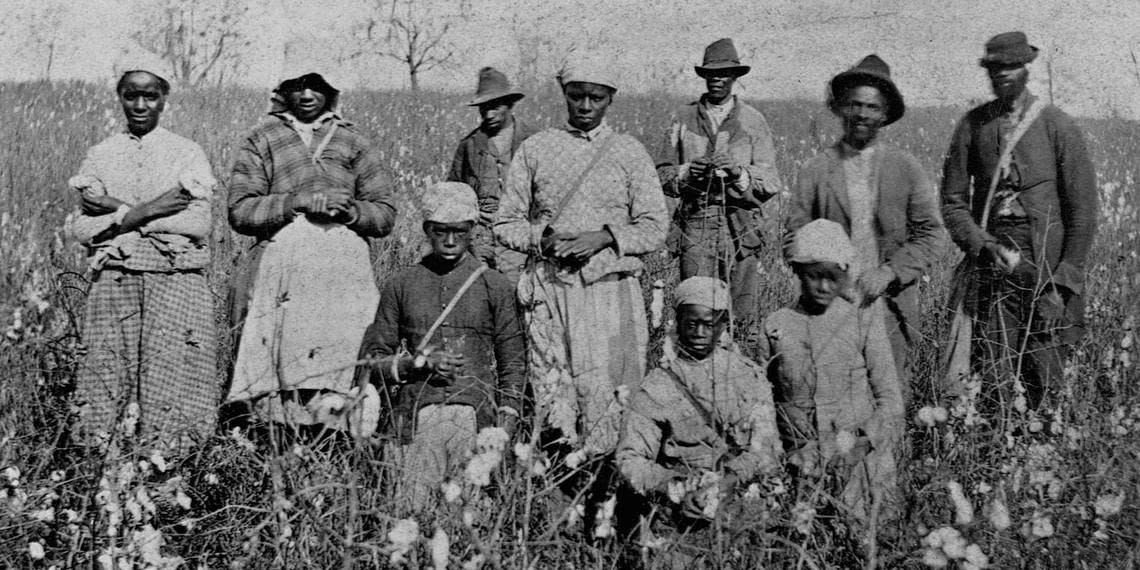Slavery? DeSantis doesn’t care if students leave classrooms more ignorant than when they arrived | Opinion

- Oops!Something went wrong.Please try again later.
If the past two years in Florida are any indication, the need to find a silver-lining in slavery is more about white people than Black history. And that misses the point of education.
Is it possible that some enslaved Americans learned useful trades and skills? Was there ever an instance of violence committed by Black people during Jim Crow years? Did slavery exist in other parts of the world?
History isn’t just the answer to those questions. It’s about giving context, not just regurgitating events that might have happened in the past.
So when teachers tell a middle-school student that, “Slaves developed skills which, in some instances, could be applied for their personal benefit,” as Florida’s controversial new Black history curriculum standards require, the state isn’t just relaying a fact but creating a context that didn’t exist in slavery — that, somehow, slavery had an upside for the enslaved.
Here’s another fact: The enslaved were not considered people, they were considered property.
The Florida Department of Education provided 16 examples of historic figures who purportedly learned skills through enslavement, but, as a Tampa Bay Times story pointed out, historic sources show that several of those 16 people were never slaves. So not only is this particular lesson out of context, parts of it are flat-out wrong. The Department of Education should find both as unacceptable as we do.
When students learn about “violence perpetrated against and by African Americans” in the early 1900s, it creates a false equivalence between the acts intended to terrorize African Americans and prevent them from accessing simple rights, such as voting, and the uprisings that might have happened as a response to the cruelty and dehumanization they faced.
Broader context
Historians, public school teachers, Democratic lawmakers and Vice President Kamala Harris have criticized Florida’s new standards. In response, the Department of Education issued a statement defending the indefensible.
“Any attempt to reduce slaves to just victims of oppression fails to recognize their strength, courage and resiliency during a difficult time in American history,” part of the statement read. A department spokesperson told the New York Times the curriculum teaches “the good, the bad and the ugly” of African-American history.
Indeed, singling out a couple of examples doesn’t explain the new standards in their entirety. There are modules on African American heroes, such as Jesse Owens and Rosa Parks, Black inventors, African-American oral traditions and the contributions of African Americans to Florida. The curriculum also covers the causes and consequences of the slave trade, the impact of the cotton industry on the expansion of slavery, the conditions under which enslaved Africans were brought to America and the “harsh conditions in the Virginia Colony.”
Florida has required schools to teach Black history since 1994, but only 11 of the state’s 67 school districts teach it sufficiently, as the Herald reported.
But instead of addressing that shortcoming, Gov. Ron DeSantis and the Florida Legislature made teachers fear talking about race. A law, dubbed “Stop W.O.K.E. Act,” banned classroom instructions that makes students feel they bear “personal responsibility for and must feel guilt, anguish or other forms of psychological distress because of actions, in which the person played no part, committed in the past by other members of the same race, color, national origin.”
The goal of teaching of history should never be to blame white children for slavery or segregation. But confronting the dark moments of American history should make students of all backgrounds uncomfortable — to say nothing of more aware and thoughtful.
Lessons for today
The Stop W.O.K.E. Act guarantees that young people won’t have to reflect on racial inequalities that started when ships full of Africans in bondage arrived at our shores and, most important, still infect the world in which they live today. Yes, such contemplation can elicit feelings of anguish and even guilt. No one should feel guilty for something they did not do. However, no student should leave a classroom more ignorant than when they entered.
Florida has also banned an AP African American Studies course and instituted a new civics training for teachers that says Presidents George Washington and Thomas Jefferson wanted to outlaw slavery without mentioning that both were slave owners. School districts across Florida have banned books by Black authors or on topics of race, many because the vague wording of the law has made them more cautious about running afoul of it.
In March, Pinellas County Schools temporarily barred elementary school students from watching a historic movie about civil rights pioneer Ruby Bridges. A complaint from a parent stated the film teaches kids that “white people hate Black people.” Bridges integrated a New Orleans school in 1960, so it’s only natural that the movie would portray the racism she encountered from whites.
It’s not lost on us that, when faced with how adults bullied and harassed a 6-year-old Black girl trying to attend school, some people make the teaching of history all about how they feel.
DeSantis’ law has ushered a wave of efforts to make Black history about something that it is not — protecting white sensibilities. It should be a given — not a relief — that Florida’s history standards include lessons on the conditions of enslaved Americans. But imagine if, instead of skills acquired through bondage, Florida teachers were asked to discuss how Cubans benefited from Fidel Castro’s authoritarian regime.
That’s unimaginable because it would never happen in Florida. There’s only one group whose history gets exploited — shamefully and shamelessly — for political gain. It’s a story as old as America.
Click here to send the letter.

